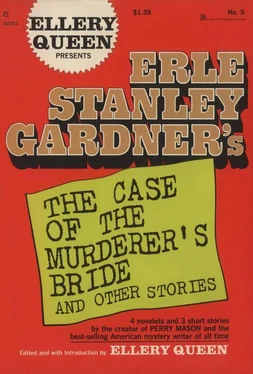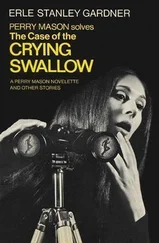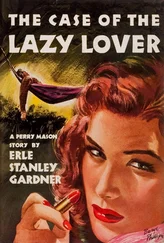Erle Gardner - Erle Stanley Gardner’s The Case of the Murderer’s Bride and Other Stories
Здесь есть возможность читать онлайн «Erle Gardner - Erle Stanley Gardner’s The Case of the Murderer’s Bride and Other Stories» весь текст электронной книги совершенно бесплатно (целиком полную версию без сокращений). В некоторых случаях можно слушать аудио, скачать через торрент в формате fb2 и присутствует краткое содержание. Город: New York, Год выпуска: 1974, Издательство: Davis Publications, Жанр: Классический детектив, на английском языке. Описание произведения, (предисловие) а так же отзывы посетителей доступны на портале библиотеки ЛибКат.
- Название:Erle Stanley Gardner’s The Case of the Murderer’s Bride and Other Stories
- Автор:
- Издательство:Davis Publications
- Жанр:
- Год:1974
- Город:New York
- ISBN:нет данных
- Рейтинг книги:4 / 5. Голосов: 1
-
Избранное:Добавить в избранное
- Отзывы:
-
Ваша оценка:
- 80
- 1
- 2
- 3
- 4
- 5
Erle Stanley Gardner’s The Case of the Murderer’s Bride and Other Stories: краткое содержание, описание и аннотация
Предлагаем к чтению аннотацию, описание, краткое содержание или предисловие (зависит от того, что написал сам автор книги «Erle Stanley Gardner’s The Case of the Murderer’s Bride and Other Stories»). Если вы не нашли необходимую информацию о книге — напишите в комментариях, мы постараемся отыскать её.
Erle Stanley Gardner’s The Case of the Murderer’s Bride and Other Stories — читать онлайн бесплатно полную книгу (весь текст) целиком
Ниже представлен текст книги, разбитый по страницам. Система сохранения места последней прочитанной страницы, позволяет с удобством читать онлайн бесплатно книгу «Erle Stanley Gardner’s The Case of the Murderer’s Bride and Other Stories», без необходимости каждый раз заново искать на чём Вы остановились. Поставьте закладку, и сможете в любой момент перейти на страницу, на которой закончили чтение.
Интервал:
Закладка:
Jane felt a surge of guilt at having opened the drawer, but feminine curiosity caused her to hesitate long enough before closing it to notice Pearl’s return address in the upper left-hand comer of one of the envelopes addressed to Buck Doxey...
It was as they were finishing lunch that they heard the roar of the plane.
They went to the door to watch it turn into the teeth of the cold north wind, settle to a landing, then taxi up to the low buildings.
The Sheriff and Buck Doxey started running toward the cabins and it was solace to Jane Marlow’s pride to see the look of almost comic relief on the face of the Sheriff as he saw Kane with the rifle and Findlay with bound wrists.
Jane heard the last part of Doxey’s hurried explanation to Kane.
“Wouldn’t trust a woman that far, but her story held together and his didn’t. I thought you’d understand what I was doing. I flew in with the Sheriff just so I could call the F.B.I. in Los Angeles. Findlay is a badly wanted enemy spy. How did you make out?”
Kane grinned. “I decided to give Findlay a private third-degree. He answered my questions with a gun. If it hadn’t been for that horse—”
Buck’s face broke into a grin. “He fell for that one?”
“Fell for it, and off it,” Kane said.
“If he hadn’t been a fool tenderfoot he’d have noticed that I led the horse out from the corral instead of riding him over. Old Fox is a rodeo horse, one of the best bucking broncs in Wyoming. Perfectly gentle until he feels it’s time to do his stuff, and then he gives everything he has until he hears the ten-second whistle. I sort of figured Findlay might try something before I could sell the Sheriff a bill of goods and get back.”
It had been sheer impulse which caused Jane Marlow to leave the train early in the morning. It was also sheer impulse which caused her to sign Pearl’s name to a telegram as she went through Cheyenne.
The telegram was addressed to Buck Doxey, care of the Forest Ranger Station and read:
BUCK I AM SO PROUD OF YOU. PEARL.
Having started the message on its way, Jane looked up Pearl and casually told her of the tom picture which had been so laboriously pasted together.
Half an hour later Jane was once more speeding east aboard a sleek streamliner, wondering if her efforts on behalf of Cupid had earned her the undying enmity of two people, or had perhaps been successful.
When she reached Omaha two telegrams were delivered. One was from Howard Kane and read simply:
YOU WERE SO RIGHT. IT GETS TERRIBLY LONELY AT TIMES. HOLD DINNER DATE OPEN FOR TONIGHT. YOU NEED A BODYGUARD ON YOUR MISSION AND I AM FLYING TO CHICAGO TO MEET YOU AT TRAIN AND DISCUSS THE WYOMING CLIMATE AS A PERMANENT PLACE OF RESIDENCE. LOVE. HOWARD.
The second telegram was the big surprise. It read:
I GUESS I HAD IT COMING. PEARL AND I BOTH SEND LOVE. I GUESS I JUST NEVER REALIZED WOMEN ARE LIKE THAT. YOURS HUMBLY. BUCK DOXEY.
Lester Leith versus Sergeant Ackley in
The Candy Kid
Lester Leith, slender, debonair, gathered the lounging robe about him and sprawled at silken ease.
“Scuttle, the cigarettes.”
His valet proffered the case of monogrammed cigarettes with a synthetic servility which ill became the massive hulk of the man. “Yes, sir,” he said.
“And the crime clippings. I think I’d like to read about crime.” The valet, who was in reality no valet at all, but a police spy employed to watch Lester Leith and report his every move, let his thick lips twist into a grin.
“Yes, sir. I was going to speak to you about them. Your prediction has come true.”
“My prediction, Scuttle?”
“Yes, sir. You remember Carter Mills, the gem expert?”
Lester Leith puckered his forehead.
“Mills... The name seems to be familiar, Scuttle... Oh, yes, he was the one who was working on the ruby necklace for some rajah or other. He insisted on grabbing all the newspaper publicity he could get. I remember the headline: Carries a Million Dollars to Work.”
The valet nodded. “Yes, sir. That’s the one. You remember he had his photograph taken with a leather brief case in his hand. The newspaper article mentioned that he carried a fortune in rare gems back and forth from his place of business to his house. He was making a design for the rubies, flanked with diamonds. It was to be something unique in the art of gem setting, sir, and—”
“Yes, yes, Scuttle. There’s no need to go into it again, but you’ll remember that I mentioned he was simply inviting danger.”
“Yes, sir. You said that Mr. Mills didn’t realize how businesslike the underworld had become. You mentioned that he would find himself robbed someday and that his client would find, to his grief, that it didn’t pay to have a gem designer who carried a million dollars’ worth of stones around in a brief case.”
Leith nodded. “I take it, Scuttle, that all this is merely a preface to telling me that Mr. Mills was robbed?”
“Yes, sir. Yesterday morning, sir. He went to work in a taxicab. He was carrying the brief case stuffed with gems and sketches. When he opened his shop he found a man standing inside with a gun. The man ordered Mills to come in and lock the door, and Mills had to obey. The man took the brief case and started to run for the back.
“But Mills hadn’t been altogether foolish. He had installed a burglar alarm just inside the door, and he’d notified the occupants of adjoining buildings what it would mean when the burglar alarm sounded.
“He pressed the burglar alarm and then grabbed a shotgun which he kept behind the counter for just such an emergency. He fired, and he fired low. Some of the pellets hit the bandit’s legs.
“The sound of the shots and the noise of the burglar alarm made a terrific commotion. You see, it was early in the morning. Mr. Mills makes a habit of being the first one to come to his shop every morning. I believe it was about ten minutes to eight, sir.
“But there were clerks in some of the adjoining stores, and there was a traffic officer on duty at the corner. Naturally, these men all got into action.
“By the time the bandit reached the alley there were two clerks waiting for him. He ran toward a car that was parked in the alley and started it. But the clerks shouted to the traffic officer and he sprinted for the mouth of the alley.
“The bandit saw him coming, jumped out of the car, still carrying the brief case, and dashed into the rear door of a candy store.”
Lester Leith held up his hand.
“Just a moment, Scuttle. You say he was wounded, this bandit?”
“Yes, sir.”
“Bleeding, Scuttle?”
“Yes, sir.”
“Clerks behind him raising an alarm?”
“Yes, sir, and Mr. Mills, with a shotgun, banging birdshot at him.”
“Birdshot, Scuttle?”
“Yes, sir — a size they call Number Eight.”
Lester Leith blew a meditative smoke ring at the raftered ceiling.
“Rather an unusual size of shot for a man to use in repelling a bandit, Scuttle!”
“Yes, sir, it is. But, as Mr. Mills explained to the police, one is less apt to miss with a charge of small shot. And he was most anxious, as he expressed it, to leave his marks on the bandit.”
Lester Leith waved his hand in a careless gesture.
“Quite right, Scuttle. Number Eight shot will make a most uniform pattern, and it’s deadly if the range is short. What happened next?”
“Well, sir, the back door of the candy store was open, because the proprietor was moving out some boxes and refuse. But the store hadn’t been opened for business, so the front door was locked.
“The proprietor of the candy store ran out and locked the back door. The bandit was trapped. It took a key to open the front door and the proprietor had taken that key with him when he ran out the back door.
Читать дальшеИнтервал:
Закладка:
Похожие книги на «Erle Stanley Gardner’s The Case of the Murderer’s Bride and Other Stories»
Представляем Вашему вниманию похожие книги на «Erle Stanley Gardner’s The Case of the Murderer’s Bride and Other Stories» списком для выбора. Мы отобрали схожую по названию и смыслу литературу в надежде предоставить читателям больше вариантов отыскать новые, интересные, ещё непрочитанные произведения.
Обсуждение, отзывы о книге «Erle Stanley Gardner’s The Case of the Murderer’s Bride and Other Stories» и просто собственные мнения читателей. Оставьте ваши комментарии, напишите, что Вы думаете о произведении, его смысле или главных героях. Укажите что конкретно понравилось, а что нет, и почему Вы так считаете.












